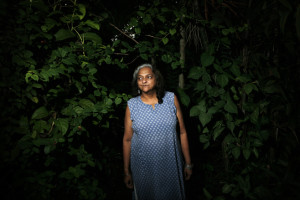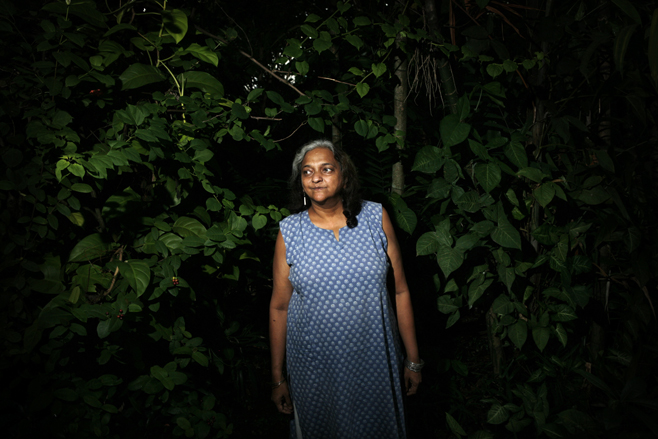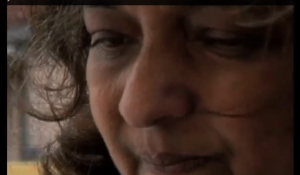Human Rights Watch on Loss of Leading Voice for Rights in Sri Lanka’s Deadly Conflict
 |
-
Sunila Abeysekera;© 2006 Tim Hetherington for Human Rights Watch
With a rare ability to act as researcher, advocate, and spokesperson within Sri Lanka and abroad, Abeysekera was internationally recognized as one of South Asia’s preeminent human rights activists.
During Sri Lanka’s 26-year civil war, Abeysekera refused to take sides, denouncing abuses by both the government and the separatist Liberation Tigers of Tamil Eelam. Her fierce commitment for the rights of all civilians regardless of ethnicity won her broad-based respect. She faced death threats for her work in an environment which both during and after the war was dangerous for human rights defenders. In spite of these threats, she frequently took her message to the United Nations and other international venues, where she was a combative defender for justice.
Abeysekera was a leading activist on behalf of the human rights of women in Sri Lanka and globally. She recognized that Sri Lanka’s civil war had a terrible impact on the lives of countless women and children. “Women and children are the first victims of any kind of conflict,” Abeysekera said.
Abeysekera started her first career as a drama critic but Sri Lanka’s internal conflicts quickly pulled her from the stage. She entered the human rights field, and became the executive director of INFORM, a nongovernmental organization that exposed serious abuses and sought to bring institutional change in the country. Abeysekera struggled against the entrenched culture of impunity to hold perpetrators accountable for enforced disappearances, killings of civilians of all ethnicities, and the protection of those displaced by Sri Lanka’s armed conflict.
Watch Video here
In recognition of her work, Human Rights Watch gave Abeysekera its Human Rights Defender Award in 2007.
Human Rights Watch extends its sympathies to her family, friends, and colleagues. She was an indispensable colleague, and will be deeply missed.
Tributes to Sunila Abeysekera
By Peggy Hicks, global advocacy director at Human Rights Watch
As my daughter started second grade today, I arrived in the office to the horrible news that Sunila Abeysekera, an inspiring Sri Lankan human rights defender, had died. Sunila was an enormously courageous woman who struggled for decades to push for answers and justice for victims of human rights abuses in Sri Lanka. I only met Sunila a few times, but one didn’t need to know her well to be impressed. She had the quiet strength of the most powerful and charismatic leaders, an intense gaze, a quick wit and unparalleled commitment to making a difference. She was generous and kind, but while we discussed strategy for an upcoming campaign, it was clear what a formidable opponent she would be for those who opposed her.
In 2006, the new United Nations Human Rights Council was inaugurated and a few human rights defenders were invited to speak at its opening session, along with countless government officials. We were asked informally for names to fill these precious spots – people to tell the world that this UN body should be more than a talk-shop, that it needed to make a difference in people’s lives. Sunila came immediately to mind, and she was ultimately selected to address the body, to the dismay of her own government. The Sri Lankan government, then and now, had a dismal track record of threats and abuse aimed at those who criticize it publicly, particularly before the world body. Yet Sunila took it on, shrugging off the risks to her own safety
My daughter mentioned that her buddies sometimes get messages from their moms in their lunch boxes. A nice idea and one I had wanted to take up this year. But what to say? She’s already starting to take her cues from popular culture, reading about New York fashion week on the way to school this morning. Maybe this is my chance to introduce some real heroes to her, week by week. Tomorrow, she’ll have a photo of Sunila in her box, and we’ll talk about what made her special, and why she’ll be missed.
By Fred Abraham, special advisor at Human Rights Watch
The family, friends, and colleagues of Sunila Abeysekera will miss her forever. But maybe those who suffered human rights violations in Sri Lanka will miss her the most. That’s because she fought tirelessly for their rights.
For two decades she got on her government’s nerves. They accused her of being a traitor and enemy of the state. She had to flee her country many times. They could not stand that a woman from the Sinhala majority would defend the rights of the minority Tamils.
But Sunila did not stop there. She spoke with equal vigor against the barbaric bombs and suicide attacks of the Tamil Tigers. That made her even more dangerous to the government: she couldn’t be dismissed as a slanted Tiger hack.
Sunila spoke everywhere: at demonstrations, at conferences, at the United Nations. She was the third speaker from a nongovernmental organization to address the Human Rights Council at its opening session in 2006. She explained, she pressed, she argued. She kept up strong ties to local communities and advocated on an international level at the same time. She was more comfortable drinking village tea than Geneva espresso.
Her battles reached past the borders of Sri Lanka. She influenced the global women’s movement and defended Lesbian, Gay, Bisexual, and Transgender rights in South Asia and beyond.
Her charm also reached far. Sunila was warm, caring, and ferociously committed to the cause. She had a slightly wicked sense of humor and a deep laugh. She also could sing. Many people in many countries will miss that voice.
When I first went to Sri Lanka in 2006 the human rights situation was getting markedly worse. Sunila was visiting women in remote villages, documenting disappearances by the state, and the use of child soldiers by the Tigers. “This is the worst it’s ever been,” she told me. But instead of getting depressed she doubled the work. “We have a lot to do.” I’ll miss that voice.

